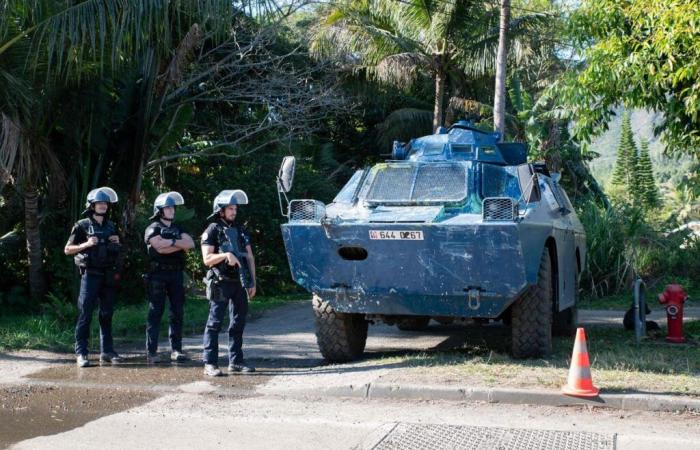This reform, to which the separatists were fiercely opposed because opening up to new arrivals would dilute their electoral weight, had given rise to very significant mobilizations – loyalists and separatists alike – in the streets of Nouméa in the weeks preceding May 13. The inability to restore order led the State to establish a state of emergency on May 14 – it was lifted on the 28th – and to send reinforcements: up to 6,000 members of the police. will be deployed in the South Pacific.
Emmanuel Macron flew there on May 22 to try to relaunch the dialogue. Without success, although after this visit, the field action coordination cell (CCAT), a mobilization tool for the Caledonian Union, the main Caledonian independence party, began a de-escalation. The arrest of the main leaders of the CCAT in mid-June, accused of being behind the abuses, reignited the violence for a time.
The context was still tense when the National Assembly was dissolved. On July 7, at the end of a difficult campaign, loyalist Nicolas Metzdorf won the first constituency when Emmanuel Tjibaou, UC candidate, became the first pro-independence Caledonian MP in almost 40 years.
Another major political fact: despite a completely open electoral body, the votes in favor of the separatists, who transformed the campaign into a vote for or against independence, exceeded those of the loyalists (83,123 against 72,897).
On the verge of collapse
A return to normal began in early September when the FLNKS (Kanak and Socialist National Liberation Front) decided to lift the mobilization to allow negotiations to resume. During this congress, Christian Tein, leader of the CCAT imprisoned in mainland France, was appointed president of the FLNKS, a shock decision accentuating the divisions between independence branches.
Certain areas remained under tension for a long time, notably the tribe of Saint-Louis, near Nouméa, where the authorities maintained traffic restrictions to contain numerous attacks and car thefts. The death of two young people during clashes on September 18 seemed to accelerate the negotiations, allowing a gradual return to calm.
Appeasement has made it possible to begin to address the economic and financial emergency facing the “Caillou”. According to the local government, the unrest caused more than 2.2 billion euros in damage. Jobs lost number in the thousands, tax losses for communities are enormous and public services are on the verge of collapse.
“Humility and courage”
Pierre-Christophe Pantz, doctor in geopolitics based in Nouméa, however remains “pessimistic” about the institutional future. “As long as we do not find solutions to the financial situation, it will be difficult to resume discussions,” he believes on the eve of the mission of the presidents of the National Assembly and the Senate, Yaël Braun- Pivet and Gérard Larcher, aiming to facilitate the resumption of dialogue. Initiated in Michel Barnier's general policy speech on October 1, this mission also marks the break claimed by the new government in the management of the Caledonian issue.
But the negotiations will require “humility and courage”, insists Pierre-Christophe Pantz. At a time when positions have become radicalized, both independence and loyalist leaders “will have to make their bases accept compromises while the population is observing a distrust of them”.






